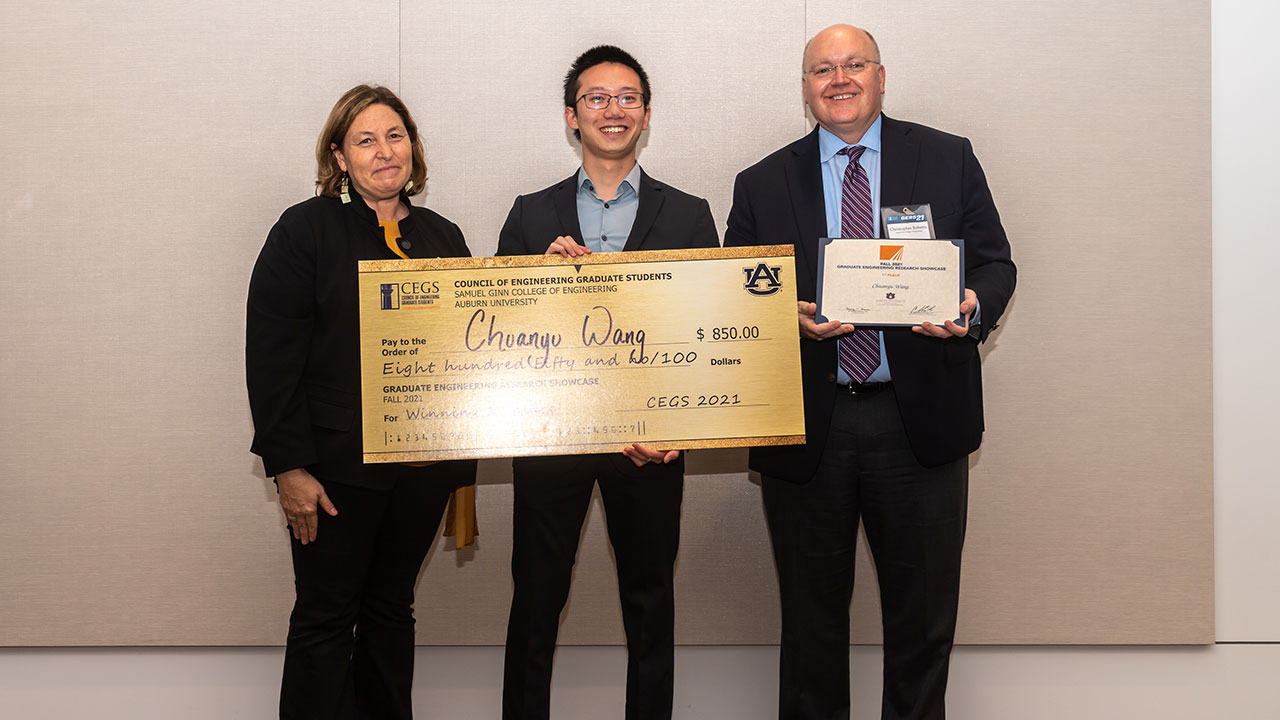One hundred forty students participate in 2021 Graduate Engineering Research Showcase
Published: Nov 1, 2021 9:00 AM
By Joe McAdory
Chuanyu Wang has a breakthrough method to detect cancer in its early stages. The graduate student studying materials engineering developed a cutting-edge approach using gold-silver core shell nano-bipyramids and nanorods to form what scientists refer to as a sandwich immune complex, which target tumor-derived and cancer-hastening exomes.
“Nowadays there is cancer therapy we call anti-PD-L-1, but this therapy encounters challenges,” he said. “For example, the patient response rate is low. In this project, we developed for biosensor to sensitively detect PD-L-1, and then we can improve this cancer therapy. We use the biosensor to detect this protein your human bodies, so then it's a good clue for the doctor to use the medicine to kill the cancer.”
Wang’s project, “Profiling Tumor Cell-Derived Exosome Using On-Chip Nanoplasmatic Sandwich Immunoessay for Cancer Diagnoses and Immune Checkpoint Therapy,” made an impression upon faculty judges, winning the 2021 Samuel Ginn College of Engineering Graduate Engineering Research Showcase on Thursday, Oct. 28, held inside the Brown-Kopel Student Center Grand Hall. Featuring 140 entries from numerous Auburn Engineering departments and presented by the college’s Council of Engineering Graduate Students (CEGS), the competition allowed students to exchange ideas via poster projects among their peers and compete for cash prizes.
“This really is amazing,” said Wang, who left home Thursday morning with a poster and returned with an $850 cardboard check for first place. “I must thank my professor, Dr. Pengyu Chen, for giving me this cool project. I must also thank Auburn University and the Samuel Ginn College of Engineering. We are provided with the bio material we needed. We are also provided with laboratories and instruments for our research. I believe I can do more projects in this area. Auburn is a good place to support me.”
Chemical engineering student Mackenzie Bockhold, took second place and the $750 prize for her work, “The Effects of Sheet Size on the Phase Behavior of MXene Dispertions.” Third place, and $650 went to aerospace engineering student Lokesh Silwal, for “Returning to the Moon: Using High-Speed Imaging to Facililate Safer Landings.”
Winning honorable mention and $350 prizes were: Roberto Perero Aguiar (aerospace), Rehman Qureshi (aerospace), Zilan Yang (civil and environmental), Mohammadjafar Heshemi (chemical), and Mayra Paez (chemical).
Departmental winners ($250 each) were: Ehsan Hassani (chemical), Hemendra Kumar (biosystems), Mahyar Moaven (aerospace), Bhargav Yelamanchili (electrical and computer), Parisa Asadi (civil and environmental), Zaman Bansal (computer science and software), Kamrul Hasan (mechanical), Nathan Pool (industrial and systems), and Yuxin Cai (materials).
CEGS Olympics winners for 2021 were: chemical engineering (first), industrial and systems engineering (second), and mechanical engineering (third).
“We really appreciate what the Council of Engineering Graduate Students has done to promote scholarly activity in innovation in this college,” said Christopher Roberts, dean of engineering. “I'm a little biased, but I am convinced that there is no program that unleashes the spirit of creativity and innovation the way graduate programs do in our college. I’m very proud. Your future is so bright. For the presentations today, I'm so impressed that you're doing things that really matter. You are working on projects that affect the economy, working on projects that are going to affect technical innovation, and you're going make people's lives better.”
The annual Graduate Engineering Research Showcase kicked off in 2012 as Aerospace Engineering Department Chair Brian Thurow recognized a need for graduate students across the college to exchange ideas through an organized forum.
“We knew there was a great deal of strong research taking place in different academic departments within the college back then, but there was no structured forum for students to exchange ideas,” said Thurow, who emceed Thursday’s event and was an assistant professor in aerospace at the time. “A graduate student could be here for five to six years working on a PhD, but not have an opportunity to see what others are doing. We wanted to create an event for that, and this generated a lot of excitement and people appreciated it. Several students came to me afterward and said, ‘We really liked this. We’d be more than happy to help.’”
These students developed the Graduate Engineering Research Showcase, which proved to be the CEGS' origination.
The Samuel Ginn College of Engineering produces some of the most sought-after graduate students in the nation. The college’s graduate students use their post-secondary Auburn education to prepare themselves for careers that impact lives, improve economies, and improve industry practice. Organizations like NASA are no different.
John Vickers, principal technologist and space technology mission directorate at NASA, who also serves as Associate Director of the Materials and Processes Laboratory at the Marshall Flight Center, addressed students to kick off the showcase.
Vickers offered the presentation, “Do Big Things: Leadership, Innovation and Other Topics: An Advanced Manufacturing Technology Perspective.”
“The entire Auburn University College of Engineering is so impressive,” he said. “I've heard Dean Roberts mention the college’s student-centered experience. By taking the student-centered experience approach, that is what makes the students excel the way that they do. At NASA, especially in Huntsville, you can't walk the halls without seeing an Auburn graduate, or hearing a ‘War Eagle’ around the water cooler. The Auburn engineering graduates are terrific.”
For more on the College’s Council of Engineering Graduate Students, visit: https://www.eng.auburn.edu/organizations/cegs/index.html
For more about the Samuel Ginn College of Engineering’s many graduate programs, visit: https://eng.auburn.edu/current-graduate-students/
Media Contact: , jem0040@auburn.edu, 334.844.3447
Chuanyu Wang and his project, "Profiling Tumor Cell-Derived Exosome Using On-Chip Nanoplasmatic Sandwich Immunoessay for Cancer Diagnoses and Immune Checkpoint Therapy," won the 2021 Graduate Engineering Research Showcase.


